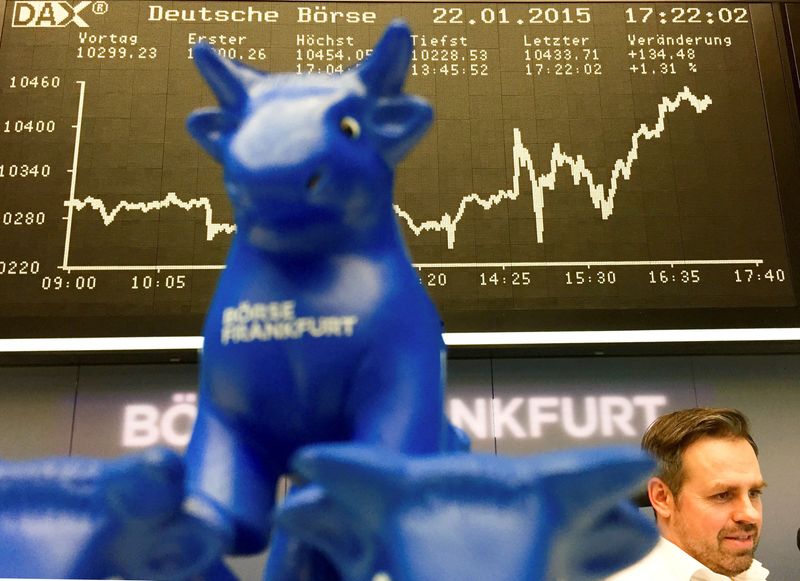This post was originally published on this site

Investing.com – European stock markets edged higher Monday, with oil companies leading the way, benefiting from the surge in crude prices following the surprise cut in OPEC+ production.
At 03:50 ET (07:50 GMT), the DAX index in Germany traded 0.1% higher, the CAC 40 in France climbed 0.4%, and the FTSE 100 in the U.K. rose 0.7%.
The Organization of Petroleum Exporting Countries and allies, known as OPEC+, unexpectedly announced on Sunday it will cut production by over 1 million barrels per day through to the end of 2023.
This move came ahead of a virtual meeting of the group’s monitoring committee later Monday, which had been widely expected to confirm the output levels agreed upon in November.
By 03:50 ET, U.S. crude futures traded 5.6% higher at $79.88 a barrel, while the Brent contract climbed 5.5% to $84.27.
This unexpected development has helped the region’s large oil and gas companies, with the share prices of Shell (LON:SHEL), BP (LON:BP), TotalEnergies (EPA:TTEF), and Eni (BIT:ENI) all up around 4%.
By contrast, the airlines have suffered, as the higher crude prices are likely to weigh on their bottom lines. IAG (LON:ICAG), Air France KLM (EPA:AIRF), and easyJet (LON:EZJ) stocks all traded about 1% lower.
Monday’s overall gains follow on from a healthy first quarter, with the DAX over 12% and the CAC 40 over 13%.
However, there remains a degree of caution that this could leave the indices more vulnerable to an economic downturn, which may have been brought closer by the tumult in the banking sector.
Data out of Asia earlier Friday showed that factory activity in the region weakened in March.
The equivalent euro zone manufacturing PMI numbers are scheduled for release later in the session, and investors will be looking to see if manufacturing in the dominant German economy remains in contraction territory.
Additionally, the sharp surge in oil prices will worry central banks already fretting about elevated inflation levels, and could force them to keep interest rates at a higher level for longer, crimping economic growth.
This may be particularly relevant in Europe where core inflation, which strips out volatile energy and food costs, accelerated to an all-time high of 5.7% in March.
The European Central Bank hiked by 50 basis points last month, and President Christine Lagarde stated on Friday that underlying inflation remains “significantly too high”.
In other corporate news, UBS (SIX:UBSG) stock fell 1% after the Swiss press reported the banking giant is poised to reduce its workforce by 20-30% as it integrates its former rival Credit Suisse (SIX:CSGN).
Cineworld (LON:CINE) stock slumped 22% after the world’s second-largest operator of movie theaters agreed on a major debt restructuring and capital injections with its creditors in order to emerge from chapter 11 bankruptcy proceedings in the U.S.
Additionally, gold futures fell 0.5% to $1,977.25/oz, while EUR/USD edged lower to 1.0837.


